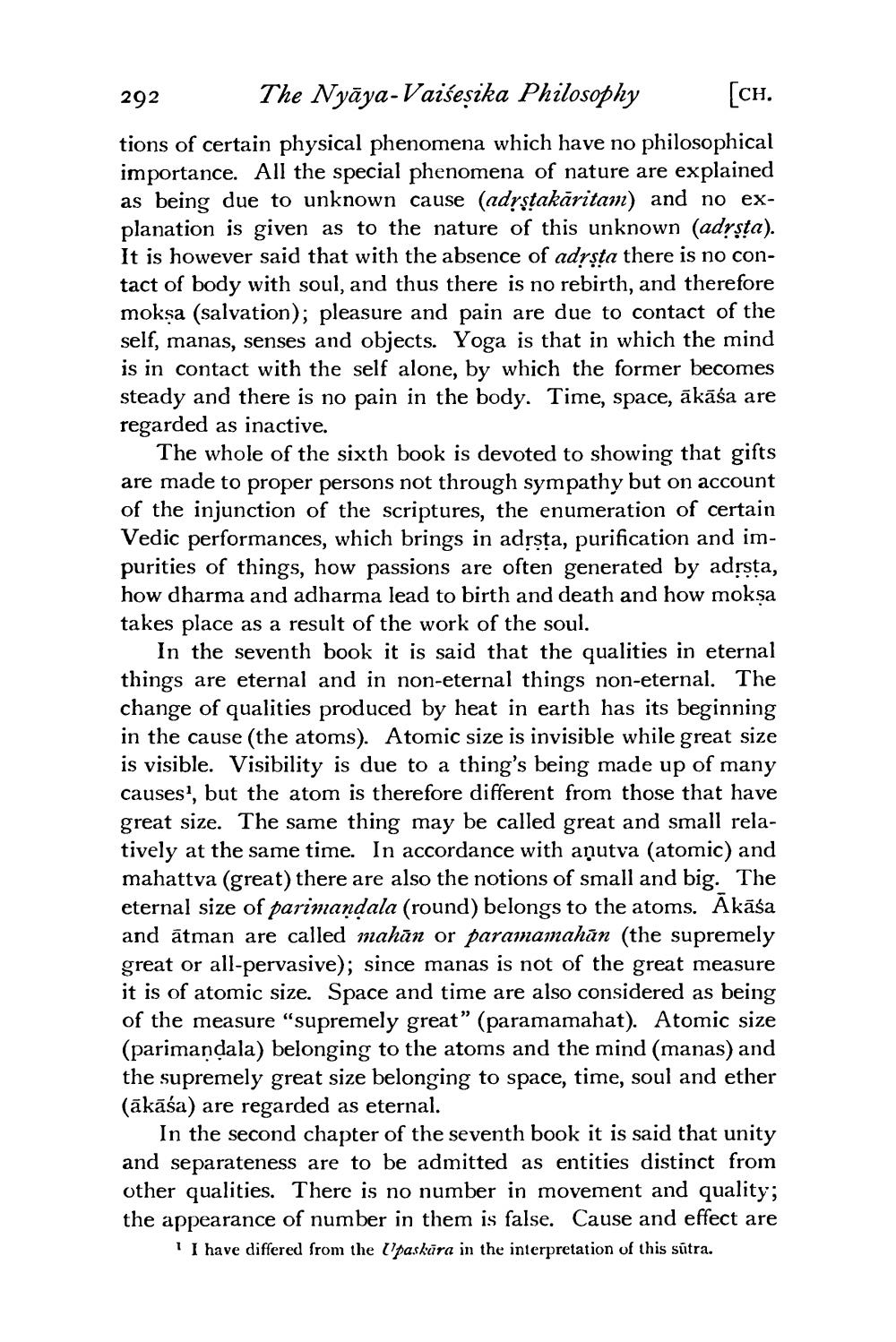________________
292
The Nyaya-Vaiseṣika Philosophy
[CH.
tions of certain physical phenomena which have no philosophical importance. All the special phenomena of nature are explained as being due to unknown cause (adṛṣṭakaritam) and no explanation is given as to the nature of this unknown (adrṣṭa). It is however said that with the absence of adṛṣṭa there is no contact of body with soul, and thus there is no rebirth, and therefore mokṣa (salvation); pleasure and pain are due to contact of the self, manas, senses and objects. Yoga is that in which the mind is in contact with the self alone, by which the former becomes steady and there is no pain in the body. Time, space, ākāśa are regarded as inactive.
The whole of the sixth book is devoted to showing that gifts are made to proper persons not through sympathy but on account of the injunction of the scriptures, the enumeration of certain Vedic performances, which brings in adrsta, purification and impurities of things, how passions are often generated by adṛsta, how dharma and adharma lead to birth and death and how mokṣa takes place as a result of the work of the soul.
In the seventh book it is said that the qualities in eternal things are eternal and in non-eternal things non-eternal. The change of qualities produced by heat in earth has its beginning in the cause (the atoms). Atomic size is invisible while great size is visible. Visibility is due to a thing's being made up of many causes', but the atom is therefore different from those that have great size. The same thing may be called great and small relatively at the same time. In accordance with aņutva (atomic) and mahattva (great) there are also the notions of small and big. The eternal size of parimandala (round) belongs to the atoms. Ākāśa and atman are called mahān or paramamahān (the supremely great or all-pervasive); since manas is not of the great measure it is of atomic size. Space and time are also considered as being of the measure "supremely great" (paramamahat). Atomic size (parimandala) belonging to the atoms and the mind (manas) and the supremely great size belonging to space, time, soul and ether (ākāśa) are regarded as eternal.
In the second chapter of the seventh book it is said that unity and separateness are to be admitted as entities distinct from other qualities. There is no number in movement and quality; the appearance of number in them is false. Cause and effect are
1 I have differed from the Upaskara in the interpretation of this sūtra.




